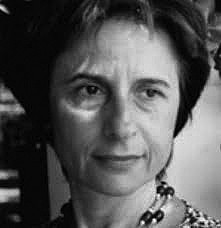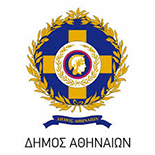| Projects: |
1972 The Fugitive on the Tree (poems), ERMIS
1975 The Catacombs (short stories), ERMIS
1979 The Tiny Ones (fairy tales), ERMIS, 3 rd ed. 1985
1981 After all Lenin did come from a very good family (short stories), EXANTAS, 3 rd edition KASTANIOTIS 2003
1983 The 92 Drawers (novel), EXANTAS
1985 The Foreign Body (novel), KEDROS, 2 nd ed. 1986
1988 The Woman from the Sands (novel), KEDROS, 3 rd ed. KASTANIOTIS1996
1991 The Joy is in the Journey (novel), KEDROS, 24 th ed. ELEFTHERIA TOU
TYPOU 2017
1996 Like Silk (novel), KASTANIOTIS, 9th ed. 2007
1997 In the Hidden Folds of Time (poems), KASTANIOTIS
1999 One Moment in Paradise (novel), KASTANIOTIS, 5 th ed.2000
2001 A Soft Summer Evening (novel), KASTANIOTIS, 9 th ed.2003
2005 Hidden Images (short stories), KASTANIOTIS
2007 Six Times Random (novel), KASTANIOTIS, 2 nd ed.
2008 All these people (novel), KASTANIOTIS, 3 rd ed.
2011 However It Is Blooming (novel), METAICHMIO 6 th ed.
2013 Let Us Be Happy just once (novel), METAICHMIO, 3 rd ed.
2016 Greece we used to love-Greece we still love (travel literature),
KEDROS
2018 The 43 silences (novel), KEDROS
2021 Days and Nights of our Life (novel), KEDROS
2023 Time invisible, visible (seventy poems and a postscript), KEDROS
|
| Abstract text: |
Some words about the novel “The Joy is in the Journey” and a small
sample of it :
Τhis “healing” book plunges the reader in a world full of sea, colours,
light and cool breeze that portray the many facets of Greek life, and at
the same time gives simple, every day, apparently unimportant facts
their real value. “Whoever derives pleasure from small things always
wins the lottery in life”, says the aged heroine who, born in the midst of
the Smyrna Disaster of 1922, was rescued from the flames and brought
to live in one of the Aegean islands where she found a second home and
a loving family.
As she spins out for us the difficulties she has had to face in her life, she
initiates us to the most difficult art of all, the art of living. A precious
initiation in our times of stress and alienation.
“Steps, steps, steps and more steps! Up and down, up and down! In a
way it’s fun…and how I could resist washing laundry today, with such a
lovely wind blowing and the air so fresh that the clothes will dry in a
moment? As soon as you hang them out they begin to flutter. Whenever
I see white shirts and sheets lose their weight and start waving,
dazzlingly white against the blue sky, I get carried away and begin
traveling on my beloved Aegean Sea to the Cyclades, to Tinos my
homeland, where the hand of fate put me down on August 1922. It was
a time when, once again, the Greeks had to pay for their sins because of
their puffed-up dreams. My friend Niki, who is a retired teacher of
Greek, tells me that there are many ancient Greek sayings in praise of
moderation, a virtue which, it would seem, we lacked even in ancient
times. As I was saying, after the Disaster of 1922 many refugees came to
the islands. The majority went to Syros, fewer to Tinos and Mykonos.
Among them was a certain Eleni. She was a newborn babe when Smyrna
went up in flames. The Greek boats that came to the rescue could not
take all the people, and so the parents of the child, wanting to save her
life, entrusted her to a sailor from Tinos. “Take her to your island”, they
told him, “and if we survive we’ll come for her. But this is the end for us,
at least let the child live…” The sailor took the baby –almost the entire
crew was from Tinos- and, on reaching the island, put her in his wife’s
care. They already had children, two boys, but decided to keep the little
girl that God had put into their hands. As far as they knew the girl had
not been baptized, the parents in their agitation had not mentioned any
name, and so they named her Eleni. “Elenitsa” I was called. I had no idea
of all this. I thought I was their real child and that only my schoolmate
Foteini was a little refugee. She had been saved in the confusion of the
Disaster by the captain of the same ship. He had no children and made
her his daughter. Foteini was very pretty and they doted on her. They
even sent her to secondary school. Later on she married a sea captain,
had children, a house, property. Her two children received a good
education. Her daughter became a notary, her son a shipbuilder. Smart
as anything, that Foteini of ours. She never learnt the truth about her
birth, though. To this day she doesn’t know. We were told her secret by
my father in the course of a conversation about parents’ in- terest in
their children. I was saying, I remember, that if a child is your own, you
feel for it and suffer and so on, but that with a child that isn’t really
yours it is different. My father then said : “It’s not quite like that,
Elenitsa. I know that Captain Elias took little Foteini in 1922 from the
refugees and…” “What! Foteini is not really their daughter? She’s a
refugee?! And they treat her like a princess?!” “Yes, Elenitsa. It’s as I’m
telling you : it’s not just birth that counts, but rearing the child, living
together, sharing its joys and sorrows. The actual birth is not enough :
the heartache comes later…” Amazed, I listened to my father, never
realizing that what he was saying concerned me directly. He would then
tell us about that day when the port of Smyrna was so covered in dead
bodies that you couldn’t see the sea : it was absolutely terrible. You can
imagine how it felt when a few years later I learnt the secret about my
birth. By then I was a grown-up girl. It was during the years of the
German Occupation, when we had to exchange all our best things for a
little flour, a little oil. My mother kept her jewels in a little casket, which
was emptying fast. One day, my big brother went over, opened it and
took out a gold medal shaped like a tear drop. The medal hung from a
gold chain together with a gold cross with a rose instead of a Christ.
“With this we’ll be able to get a whole sack of flour”, he told my mother.
“No!” she exclaimed, “not that! Not that!” “But that’s all there’s left!” he
insisted. However my mother took the medal, cross and chain from him
and put them back where they belonged. I wanted to see them, but she
wouldn’t let me. Still, I was too curious, and went and opened the casket
while she was sleeping. Holding the gold objects in my hand, I saw the
date of my baptism, my name and underneath the words “little refugee
girl” engraved on the back. At first I couldn’t understand, but then I got
very upset. These ornaments had been around the baby’s neck, with
nothing written on them. The inscription was added later on, for my
baptism. Maybe the “little refugee girl” was written by mistake, maybe
they thought that some day my real parents would turn up, maybe again
that they had intended telling me the truth early on but somehow
didn’t, who knows… It was a serious blow to me when, willy nilly, I made
them tell me the whole story. I tried to imagine my parents, but could
never see their faces. All I could see were hands handing over and hands
receiving a baby. And blood, and fire, and ashes. These pictures haunted
me for a long time. Just as a girl would feel after foolishly abandoning
her illegitimate child on the steps of the church and then wanting it back
: she will never find it, however much she looks for it and her life
becomes a torment. That’s just how I felt. Until I finally realized that the
chapter of my birth had ended and alI I had to do was close it once and
for all. My parents were those who brought me up, loved me and who in
turn I loved, dearly and truly. And indeed since then, this is the first time
that I re-open this chapter. Though maybe not. It opened of its own
accord once, when I was watching old “news” on television and
suddenly Smyrna appeared on the screen, all in flames : “Oh, my God!” I
yelled. “Oh, my God, my parents are being burnt alive!” And I burst into
tears like a small child, though I was already a granny, with grey hair and
all. That’s why, though travelling to Turkey has become very easy now, I
refuse to go, I don’t want to set foot in Smyrna. The years may go by,
bringing about many changes, but some things never change. One never
knows when the small child inside one is going to cry.
|







